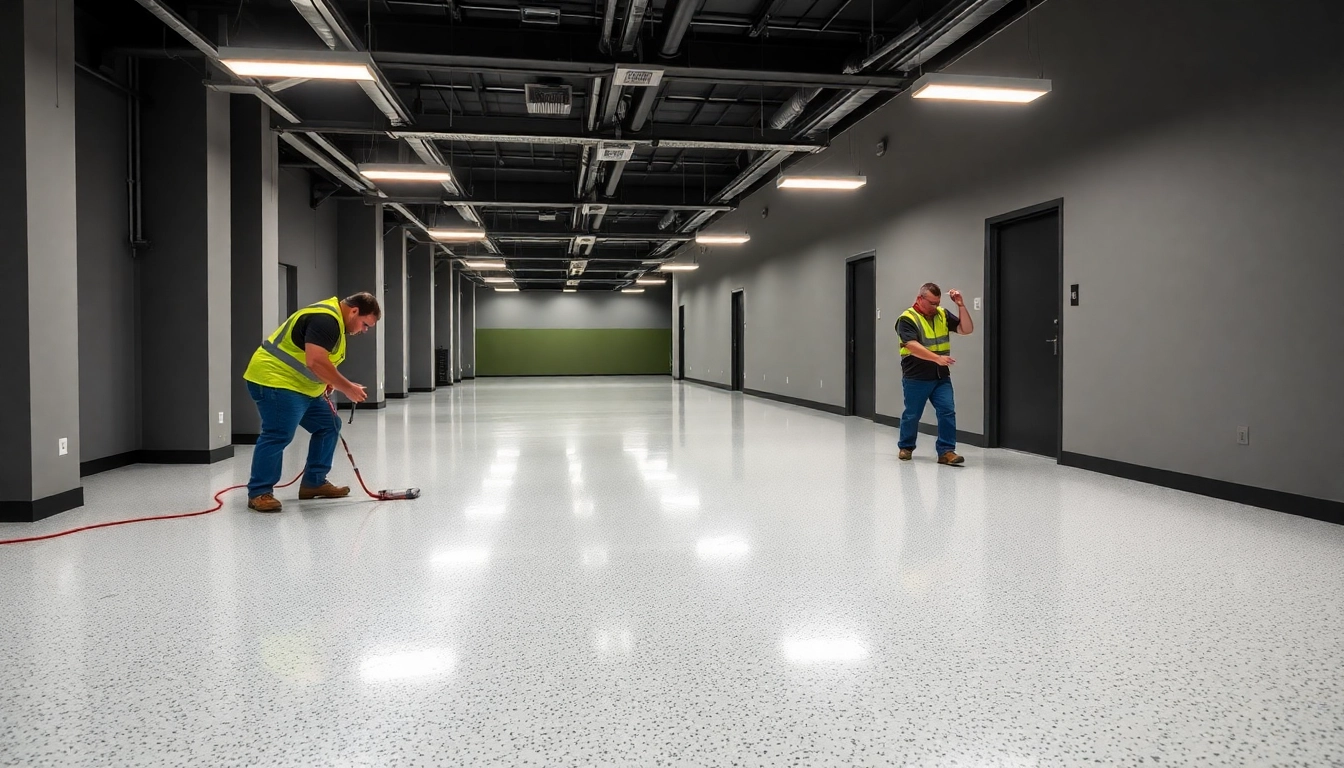Are you considering transforming your Birmingham property with durable, attractive, and long-lasting flooring? Epoxy resin flooring has become a top choice for residential, commercial, and industrial spaces due to its remarkable strength and aesthetic versatility. Finding the right epoxy resin flooring contractors Birmingham is crucial to ensure a professional installation that maximizes performance and longevity. This comprehensive guide will walk you through everything you need to know about epoxy flooring—from understanding its benefits to selecting skilled contractors, the installation process, cost factors, and maintaining your investment for years to come.
Understanding Epoxy Resin Flooring and Its Benefits in Birmingham
What is Epoxy Resin Flooring?
Epoxy resin flooring is a surface coating made from a mixture of resin and hardener, which chemically reacts to form a rigid plastic material. This coating bonds strongly to concrete substrates, creating a seamless, glossy, and durable surface. Widely used in garages, factories, commercial spaces, and even residential areas, epoxy flooring offers a combination of functional toughness and aesthetic appeal.
For Birmingham property owners seeking a high-performance flooring solution, epoxy provides an ideal balance between practicality and style. Its versatile nature allows customization in colors, textures, and finishes, making it suitable for various environments—from sleek commercial showrooms to vibrant garage floors.
Why Choose Epoxy for Your Birmingham Property?
Choosing epoxy resin flooring in Birmingham offers numerous advantages:
- Exceptional Durability: Epoxy floors withstand heavy loads, high traffic, and abrasion, making them ideal for industrial and commercial applications.
- Resistance to Stains and Chemicals: Their chemical resistance prevents damage from oils, acids, and cleaning agents, crucial for manufacturing or automotive settings.
- Ease of Maintenance: Sealed surfaces are straightforward to clean—requiring only sweeping and mopping—reducing long-term upkeep costs.
- Enhanced Safety: Options for slip-resistant textures improve safety in slip-prone environments.
- Cost-Effectiveness: Long-lasting with minimal repairs needed, epoxy flooring offers excellent ROI.
- Aesthetics: High-gloss finish and customizable color schemes help elevate the visual appeal of any space.
Key Advantages of Professional Installation
While DIY epoxy kits are available, professional installation ensures optimal adhesion, even coating application, and long-term performance. Experts understand the nuances of surface preparation, optimal mixing ratios, and environmental conditions, all of which influence the final result. Skilled contractors also offer warranties and post-installation support, providing peace of mind and assurance of quality.
How to Select the Right Epoxy Resin Flooring Contractor in Birmingham
Criteria for Evaluating Local Professionals
Choosing a reputable contractor is essential for achieving durable results. Consider the following criteria:
- Experience and Portfolio: Review their past projects, especially those similar to your property’s needs.
- Certifications and Training: Look for recognized industry certifications, indicating adherence to quality standards.
- Customer Reviews and Testimonials: Feedback from previous clients can reveal reliability and workmanship quality.
- Insurance and Licenses: Ensure the contractor is fully insured, licensed, and compliant with local regulations.
- Pricing Transparency: Request detailed quotes and clarify what is included to avoid hidden costs.
Questions to Ask Before Hiring
Prepare a list of vital questions, such as:
- What epoxy systems do you recommend for my specific application?
- Can you provide references or case studies?
- What is your typical project timeline?
- Do you handle surface preparation, or is that outsourced?
- What warranties or guarantees do you offer?
Importance of Certification and Experience
Certified contractors often follow industry best practices, leading to better adhesion, consistent results, and fewer issues such as peeling or bubbling. Experienced professionals also anticipate common challenges—like moisture in the concrete—and address them proactively, ensuring your epoxy floors withstand Birmingham’s unique climate and usage demands.
Step-by-Step Guide to the Epoxy Installation Process
Initial Site Assessment and Preparation
The process begins with a thorough evaluation of the existing substrate. Experts test for moisture, cracks, and surface contaminants. Proper preparation involves cleaning, repairing cracks or damages, and etching or lightly grinding the concrete to create an ideal bonding surface. This step is crucial; inadequate prep can lead to early failure.
Application Techniques for Long-Lasting Results
After preparation, contractors mix epoxy components precisely and apply them using rollers, brushes, or spray systems for a seamless finish. Multiple coats may be necessary for durability and aesthetic effect. They also incorporate anti-slip additives if requested. Temperature and humidity control during application are vital for curing and avoiding surface imperfections.
Post-Installation Care and Maintenance
Once cured, epoxy floors require minimal upkeep. Use gentle cleaning agents and avoid harsh abrasives. Periodic inspections help identify minor damages early. Proper maintenance extends the life of your investment and preserves its appearance and functionality.
Cost Considerations and Budgeting for Epoxy Flooring Projects
Pricing Factors in Birmingham
Costs depend on the size of the area, epoxy type, surface condition, and complexity. Standard residential garage floors generally range between £40-£70 per square meter, while more elaborate commercial installations may cost more due to specialty coatings or extra preparation steps. Local labor rates and material prices influence total expenses.
Finding Affordable yet Quality Services
Request multiple quotes and verify the scope of work. While the lowest price can be tempting, ensure that quality standards and warranties are included. Sometimes, a slightly higher initial cost yields better long-term results, saving you money on repairs or re-coating.
Estimating Project Timelines and Expenses
Typical installation time ranges from 1 to 3 days, depending on size and preparation needs. Budget for drying, curing, and potential surface repairs. Precise planning helps minimize disruptions and aligns expectations with your project’s scope.
Measuring Performance: Ensuring Quality and Longevity
Signs of Properly Installed Epoxy Floors
Key indicators include a smooth, glossy surface with uniform color and no bubbles or cracks. The coating should feel solid underfoot, and edges should be seamless. A reputable contractor will conduct quality checks before finishing the project.
Handling Repairs and Renovations
Over time, minor damages such as surface scratches or chips may occur. Professional repairs involve stripping the damaged areas and re-application of epoxy. Annual inspections and prompt attention to issues help maintain optimal performance and avoid costly complete overhauls.
Long-Term Benefits and Return on Investment
Well-installed epoxy flooring can last 10-20 years with proper maintenance, significantly increasing property value and functionality. Its resistance to wear and ease of cleaning make it especially advantageous for busy commercial settings or high-traffic areas in Birmingham homes.



